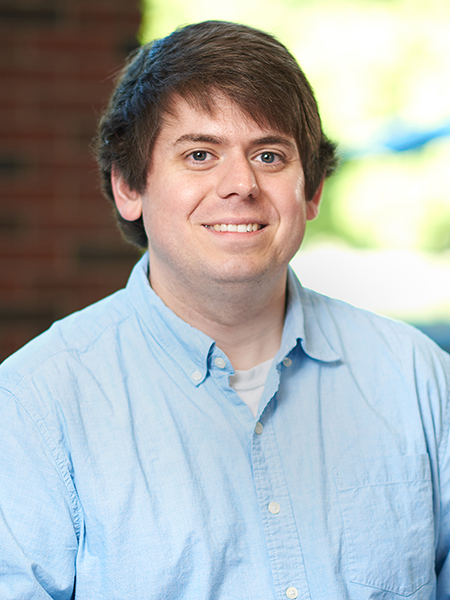Securing the Future: Purdue professors are part of groundbreaking effort to safeguard U.S. military and 5G networks

Purdue ECE and CS researchers are working to secure 5G wireless networks. David J. Love, Nick Trbovich Professor in Purdue University's Elmore Family School of Electrical and Computer Engineering, is co-PI on a project designed to ensure the U.S. military can use 5G wireless networks safely and securely. The effort, entitled "NSF Convergence Accelerator Track G: Combating Vulnerability and Unawareness in 5G Network Security," is one of five projects receiving funding in Phase 2 of the National Science Foundation's (NSF) Convergence Accelerator Track G: Securely Operating Through 5G Infrastructure. Sonia Fahmy (co-PI), professor of computer science, and Christopher Brinton, Elmore Assistant Professor of Electrical and Computer Engineering, are also part of the Purdue team. All three are affiliated faculty with The Center for Education and Research in Information Assurance and Security (CERIAS) at Purdue.
“We are excited to pursue research on securing 5G,” said Love. “Each new release of the cellular standards has included more adaptive features and complexity, which improve user performance but dramatically enlarge the attack space. I believe our team could have a significant impact on 5G deployments and lead to more secure 6G systems.”

Phase 1 of Track G began in September 2022, with 16 teams selected by the NSF. At the end of Phase 1, five Phase 2 awardees were chosen after a formal proposal and pitch. Over the next two years, the Phase 2 teams will participate in an innovation and entrepreneurial curriculum that includes technology development, intellectual property, financial management and planning, sustainability planning, and communications and outreach.
"NSF is pleased to further synergize the research and innovation communities with end-users in this critical technology and mission space," said NSF Assistant Director for Technology, Innovation and Partnerships (TIP) Erwin Gianchandani. "Together, the teams in which we are investing today will boost tangible solutions and long-lasting outcomes for the U.S. military, federal government, and critical infrastructure sectors utilizing 5G networks."
Purdue is part of the Zero Trust X (ZTX) team, which is a consortium of multidisciplinary experts specializing in 5G technology and security led by the University of Kansas Center for Research. The lead PI from the University of Kansas, Taejoon Kim, is an alumnus of Purdue (PhD ECE ’11).
The project's primary aim is to develop Zero Trust Chain (ZTC) software, a solution that enables secure sharing of situational awareness among military units operating in dynamic environments, reliant on high-performance, though potentially untrustworthy, 5G networks. The proposed software leverages the inherent adaptability of the 5G standard and incorporates innovative security mechanisms at various nodes and layers within the network infrastructure. This strategic approach empowers U.S. Department of Defense (DoD) operatives to detect and respond to malicious entities in near-real time while establishing communication mechanisms that preclude unauthorized access to or control over DoD network traffic.
The features that set the ZTC apart from existing solutions are:
- Use of the Open Artificial Intelligence Cellular (OAIC) platform to be alert to threats in the 5G network.
- Real-time threat detection on user devices
- Innovative security enhancements at the application layer, thereby avoiding modifications to the physical layer protocols of 5G.
- Assurance of location privacy and resilience against surprise attacks
- The capacity to seamlessly integrate with public 5G/O-RAN networks and standards by necessitating only the installation of low-overhead software modules on 5G user devices and cooperative 5G network elements.
The ZTX team's efforts are poised to extend their applicability to commercial and military 5G communication networks and Open-RAN (O-RAN) frameworks. Their research and development endeavors will be iteratively validated, commencing with laboratory-scale integration into a 5G/O-RAN testbed, with subsequent testing and preparation for potential commercial adoption. Additionally, the team is poised to leverage Convergence Accelerator principles to foster collaborative partnerships and engender a sustainable model, with impacts transcending the boundaries of the program's Phase 2 objectives.
